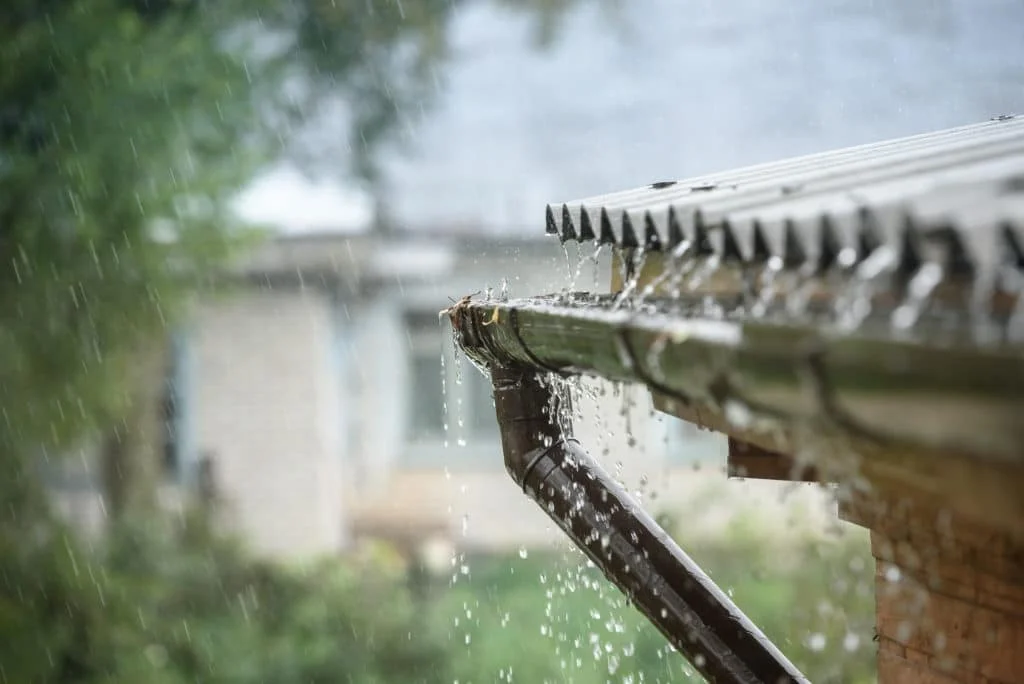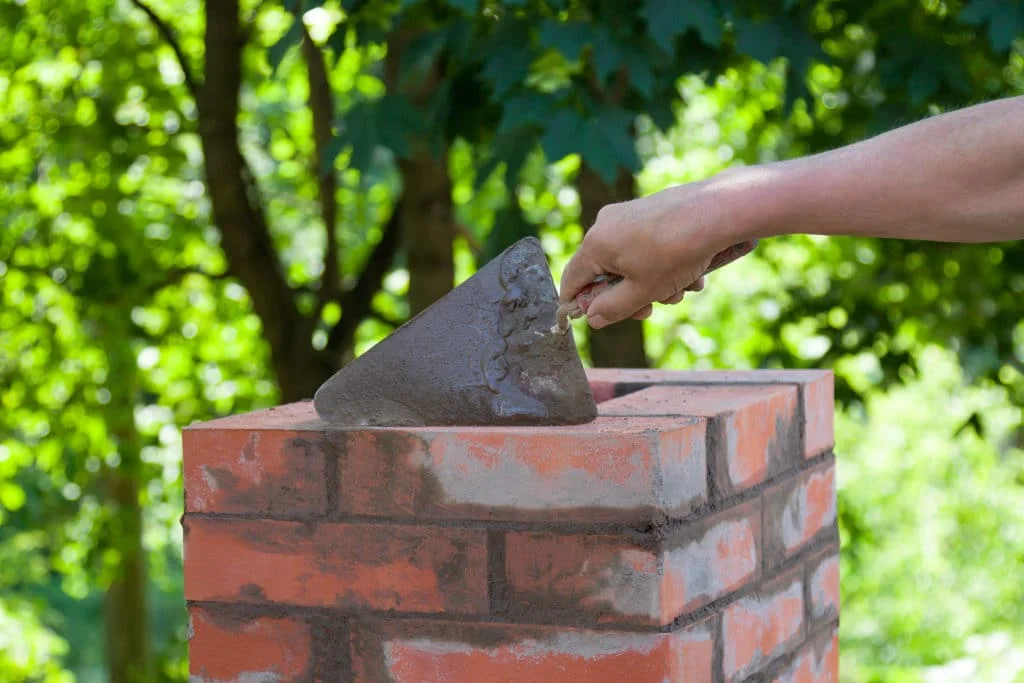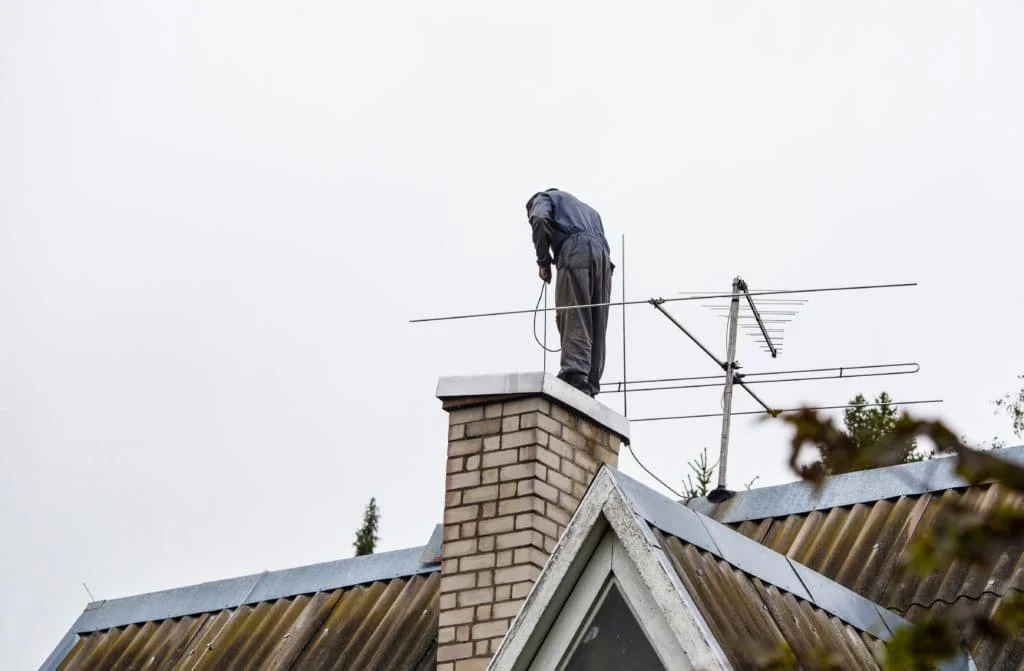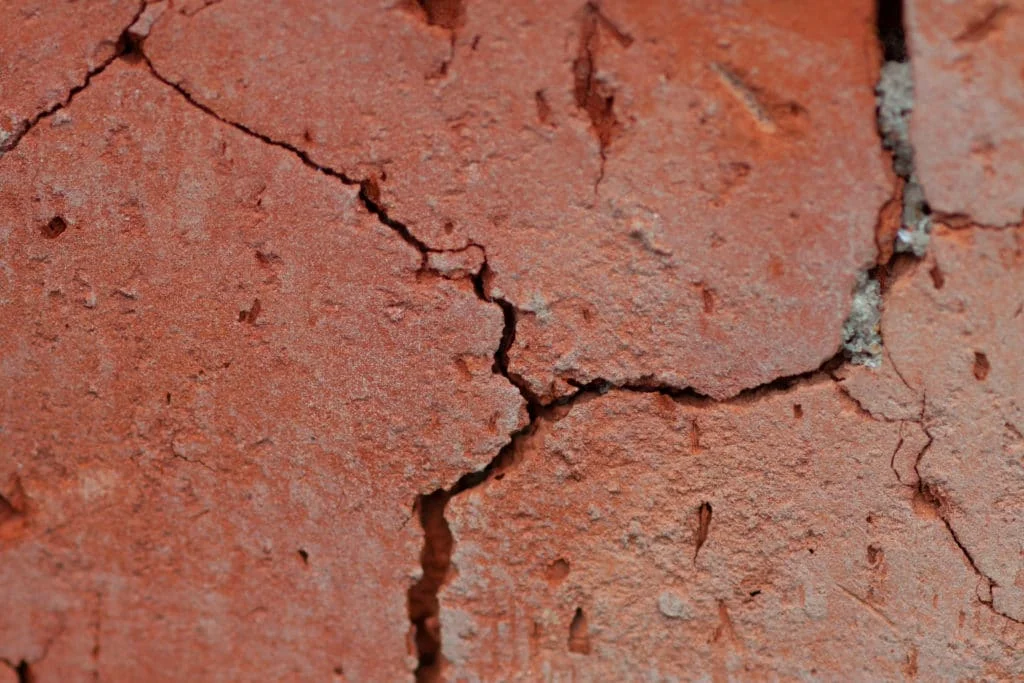So, you’ve discovered you have a cracked chimney right before you were planning on putting your house on the market. While it may feel like it, this isn’t the end of the world, but you should certainly consider the following as you plan your next move.
1. What Causes Cracked Chimneys?
A properly constructed chimney can last for centuries. But many events can lead to a cracked chimney well before its time. Some common events include:
- Improper construction – For example, if an air gap were not left between the flue lining and the chimney, this can cause trouble down the road. When the flue gets hot, it expands, so no gap means the flue has no space to expand into. CRACK!
- Heavy winds – While rare, winds can actually be strong enough to crack a chimney. Most homes will experience this level of wind at least every 20-50 years or so. If your home has been in or near a derecho, hurricane, or tornado, it could crack your chimney.
- Leaks and moisture – A chimney crown (chimney cap), and mortar reduce this risk of water damage. But when the water works its way into the parts of the chimney, it does occur. That water may then freeze and expand, causing cracks. If you notice debris falling off your chimney, that’s a sign it’s cracking.

2. What Parts of the Chimney Might Crack or Become Damaged?
You might experience several types of cracking in the:
- Bricks
- Masonry joints (mortar joints)
- Flue
- Clay liners
- Stove connected to the chimney
- Flue tiles
- Chimney crown
- Chimney liner
3. Is There Anything I Can Do to Stop Chimney Cracking?
The thing about chimneys is that if certain things get damaged, like the chimney crown, this leads to a cascade of other damage to your chimney, so it’s never a waste to get a crown repair fast. It will save you money in the long run.
Leaving big cracks in your chimney can allow water into the flue and fireplace. Getting those fixed is an arduous task but can save you from further damage.
The problem is that most homeowners can’t see the tops of their chimneys or whether cracks are forming, so more damage occurs before they have a chance to fix the problem while it was small. Don’t beat yourself up. This happens to a lot of people.
You still have some great options as you navigate this situation.
4. Are There Any Hazards to Me as a Homeowner?
A cracked chimney can cause injury. Masonry can break loose and fall on someone. If you have a two or three-story house, that can cause serious or life-threatening harm.
If damage is bad enough, the flue may not open correctly. That could lead to toxic fumes, smoke, and carbon monoxide filling the home or unintended combustion risks.
5. Can I Fix Brick Chimneys Myself?
Yes, if you’re just dealing with little cracks, you can buy mortar to repair the chimney yourself. But most of the time, the damage is past the point of being a simple weekend project.

6. How Do I Get a Chimney Inspection?
You can find and hire professional chimney sweeps to inspect your chimney.
7. How Often Should I Get a Chimney Inspection?
Annual chimney inspections and cleanings are advisable. According to the Chimney Safety Institute of America, The National Fire Protection Association Standard 211 says that chimneys, fireplaces, and related ventilation systems need to be inspected at least once a year to look for soot build-up, blockages, cracks, and other needed repairs. Cleaning and repair in-between should be done as necessary.
8. How Much Does a Cleaning and Inspection Cost?
If you have the luxury of a chimney, it does come with some cost of ownership that can add up over the years.
If you haven’t had your chimney swept and inspected in a while, the typical cost for this is $300-$400. However, if you do this every year, there’s less for the professional to do, so it’s more like $80, according to HomeAdvisor.

9. How Do I know If Improper Construction Was to Blame?
It’s hard to say. If this is a newer home, you should certainly make sure this isn’t under warranty and get in touch with the building company. They have some explaining to do.
10. Can a Professional Chimney Sweep Fix My Chimney?
Chimney sweeps are experts and maintaining the chimney system to prevent fires and other hazards. But they don’t usually fix the masonry part of chimneys. You’re looking for a chimney repair company, or perhaps a mason.
11. How Much Does a Chimney Repair Cost?
A tiny chimney repair can cost $200-$400. However, if you need significant repair or demolition and replace, this can exceed $10,000.
12. Can I Sell a Home with Broken Chimney?
You can. But if you have been informed that your chimney is unsafe or a reasonable person would come to that conclusion, you must disclose this to a homebuyer or risk legal action. Most homebuyers would insist you fix it as part of the home-buying contract.

13. Do I Have to Disclose This to a Renter
You should not, under any circumstances, rent to someone even if you tell them you have a damaged chimney. And please don’t let a family member or friend stay their rent-free. This is serious.
You don’t want to be legally or morally responsible for hurting someone’s family if carbon monoxide, toxic gases, or an out-of-control fire results from a poorly maintained chimney.
But fear not. You do have some options.
14. How to Sell Your Home Fast Without Fixing a Thing
You can sell your home to HomeGo instead. HomeGo buys homes in any condition for a fair price. Our licensed real estate agents are experts in determining the value of as-is homes.
They can usually give you a firm offer within a day of their walk-through. And that will be a cash offer, so no hoops to jump through or red tape. We can close the deal in as little as two weeks, often faster, and you can move on to a home that doesn’t have a cracked chimney or a chimney at all. Fireplaces are nice, but maintaining a chimney can be more work than it’s worth.
Not ready to move yet? We get that a lot. Since we can close so fast, many people aren’t ready to move. We try to deliver what our customers need. So we have a flexible leaseback program that lets you stay in the home as long as you need according to the leasing terms, so you can move out at your own pace. What have you got to lose except a costly chimney repair bill, and who knows what else? Get your offer.




